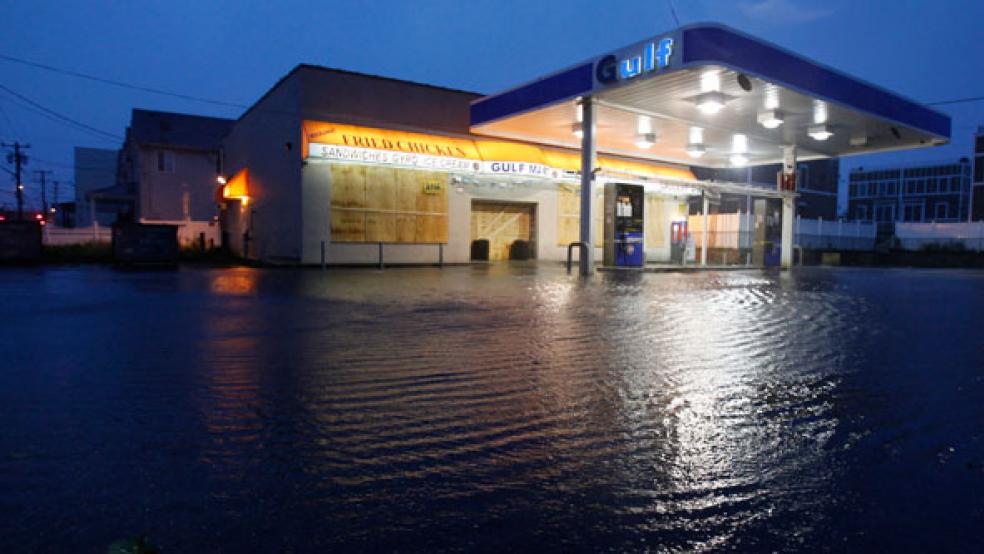Gas prices are likely to rise as Tropical Storm Isaac forces many oil refineries along the Gulf Coast to shut down.
As Americans head into the long Labor Day weekend, gas prices have already risen 5 cents to an average of $3.80 per gallon on Tuesday and 32 cents above last month’s level, according to this morning’s latest report from the American Automobile Association (AAA).
RELATED: Isaac Could Cost the Gulf Region More Than $36B
Sander Cohen, a global transportation fuels analyst and principal with Energy Security Analysis Inc., in Wakefield, Mass., said the refinery closures are substantial and will “likely cause gas prices to rise” over the holiday weekend and beyond.
Cohen told The Fiscal Times that the closures will have the biggest impact on the price of diesel fuel, which was up by 6 cents from last week, to an average of $4.08 per gallon. “There’s already a tight supply [of diesel], so this will put additional pressure on gas prices as we head into the end of the driving season,” Cohen said.
Isaac, which was previously classified a hurricane and on Wednesday afternoon was downgraded to a tropical storm, made landfall along the southeastern Louisiana coast around 6:45 p.m. on Tuesday evening. It was predicted to move slowly along the coast today, threatening towns in Mississippi, Alabama and Louisiana; it has already prompted rescues in Plaquemines Parish, Louisiana.
Isaac arrived seven years after Hurricane Katrina devastated New Orleans, shutting down Louisiana’s refineries and reducing oil production by 1.4 million barrels per day, equivalent to about 91 percent of daily oil production.
Before Isaac threatened the Gulf Coast, gas prices were already on the rise across the country: The average price had gone up three cents last week, 16 cents per gallon higher than last year at this time.
The White House had hinted in the spring that it might tap the U.S. strategic oil reserves in response to rising gas prices, but it dropped the idea when prices began to plateau or drop. Now, Isaac may turn on the pressure again. On Tuesday, White House Press Secretary Jay Carney said tapping the strategic oil reserves was still on the table.



